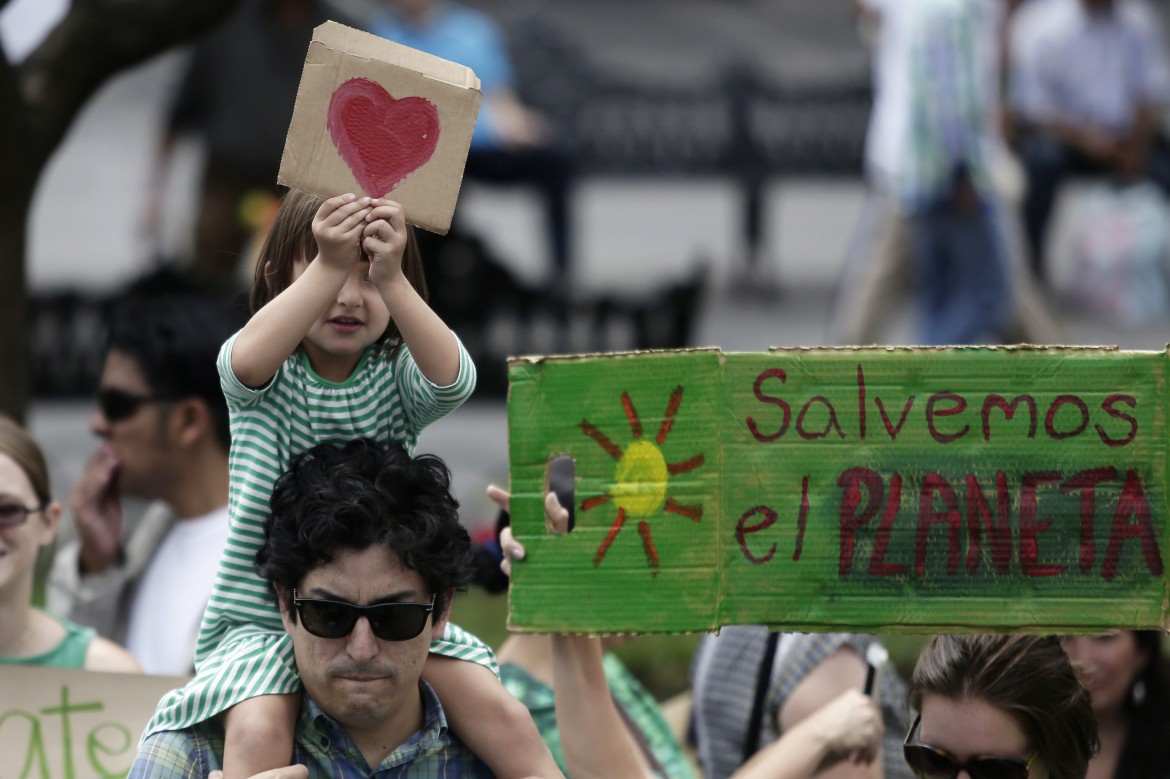Interview
Carlo Petrini wants a Marshall Plan for earth
The founder of the International Slow Food Movement spoke with il manifesto about the connection between migration and environmental decay, pointing to the need for a new economic paradigm.

Carlo Petrini seems to say that we have to look not only at the health of the planet, but also at that of its inhabitants, along the lines of Pope Francis’ message. Only by looking at the problem from this perspective can one see the connections among issues which in the political discourse are strictly separated: climate change, food production and migration, for example.
The creator of Slow Food believes that we cannot treat the earth-killing fever just by alleviating its symptoms. In his opinion, it is necessary to address the root of the malaise, fighting “the insane economic system” that generates it and proposing a radical socialist and humanitarian paradigm shift.
His theoretical recipe for saving the planet is made up of two basic ingredients: the decolonization of thought and the creation of a new socio-economic model. This translates into a practical proposal of a Marshall Plan for the poorest countries. ”Two days ago, our Prime Minister Paolo Gentiloni said that we must increase aid to the countries of origin of migrants to create jobs there. Right, but the truth is that the E.U. does not do anything,” he told us in an interview. ”If it really wanted to intervene, it should invent a sort of Marshall Plan, but even stronger.”
That would mean abandoning the austerity policy, exactly what the European Union does not want.
It would be a massive amount of money, of course. However, if nothing is done, we will pay those costs anyway, because there will not be walls able to contain the wave of migration. This is the most important political battle in Europe today, the only way to face the progress of Salvini and Le Pen.
Sunday is World Earth Day, but no one had the idea of tying migration to earth as you do.
If we do not see the connection between the destruction of ecosystems and migrations, we do not understand anything about what is happening. Most people do not flee because of the wars, but because their life prospects are nil. Young Africans are denied the right to land, which was once customary, because the new settlers come and buy it legally, hoarding it at ridiculous prices thanks to the rogue corrupt governments children of decolonization.
What do you mean by new settlers?
I am talking about the Chinese and Indians, who buy millions of hectares of land in Africa to produce food that does not go to the Africans, or sovereign funds that do the same to produce biofuels. This causes the loss of biodiversity and soil fertility, which then triggers mass migration.
Then there are the old colonizers. Many European investments in Africa are related to environmental sustainability.
This is also a minefield. For example, in Uganda the local government has made available to Norway a large area of land for reforestation. By itself it would be a good thing, except that 10,000 shepherds have lost their jobs. We must learn to decode the new forms of colonialism that hide behind these projects, which can be sustainable from an environmental point of view but not from the social angle. Especially in Africa, you need a process of decolonization of thought, because history is presenting the first invoices. After slavery, the boorish colonialism and the vulgar one masked in the agreements with the post-colonial governments, now people are starting to rebel. Entire areas are desertifying because of climate change, the masses of dispossessed can no longer live on those lands. This situation does not hold.
But the exploitation of resources does not stop.
Without doubt, mankind has behaved irresponsibly in the last fifty years. Just think about what has been done with deforestation and mining and oil extraction, where the local community have been penalized the most. If we adopt this point of view, paying attention to the weakest leads to thinking about a vision of integral ecology similar to that proposed by Pope Francis in the encyclical Laudato Sii: you need to think not only about the land but also about those who live on it. The international community has tolerated these forms of selfishness and insensitivity for too long, as if the resources were limitless. The suffering of ecosystems is compounded with the community’s.
Yours is a radical critique of neoliberalism.
We must go back to the source of these irresponsible behaviors. I believe that the main reason is a perverse economic logic that puts profit at the top and does not look at anybody. It is a rampant hyper-liberalism that is destroying the planet for the benefit of a few. This requires a paradigm shift. Unless we plan to build an economy of the community, which looks after the needs at the local level, we will not get out.
Then there is the question of food. You were among the first to raise the issue with Slow Food and Terra Madre.
The food issue is one of the key points, but the international community has never highlighted it. We talk about climate change and the loss of fertility of the soil but we do not question the more invasive practice, which is the production of food. We talk about the tons of plastic into the sea, but we do not discuss trawling fishing for the production of animal feed, which is affecting the biodiversity. Either governments begin to think about these things, or we all go towards disaster. Unfortunately, things are not going in this direction: Trump does not show evidence of the sensibility one of the world powers, with the larger share of responsibility in the ecological disaster, should have. We are at a decisive crossroads.
Originally published at https://ilmanifesto.it/ci-vuole-un-cambio-radicale/ on 2017-04-23
